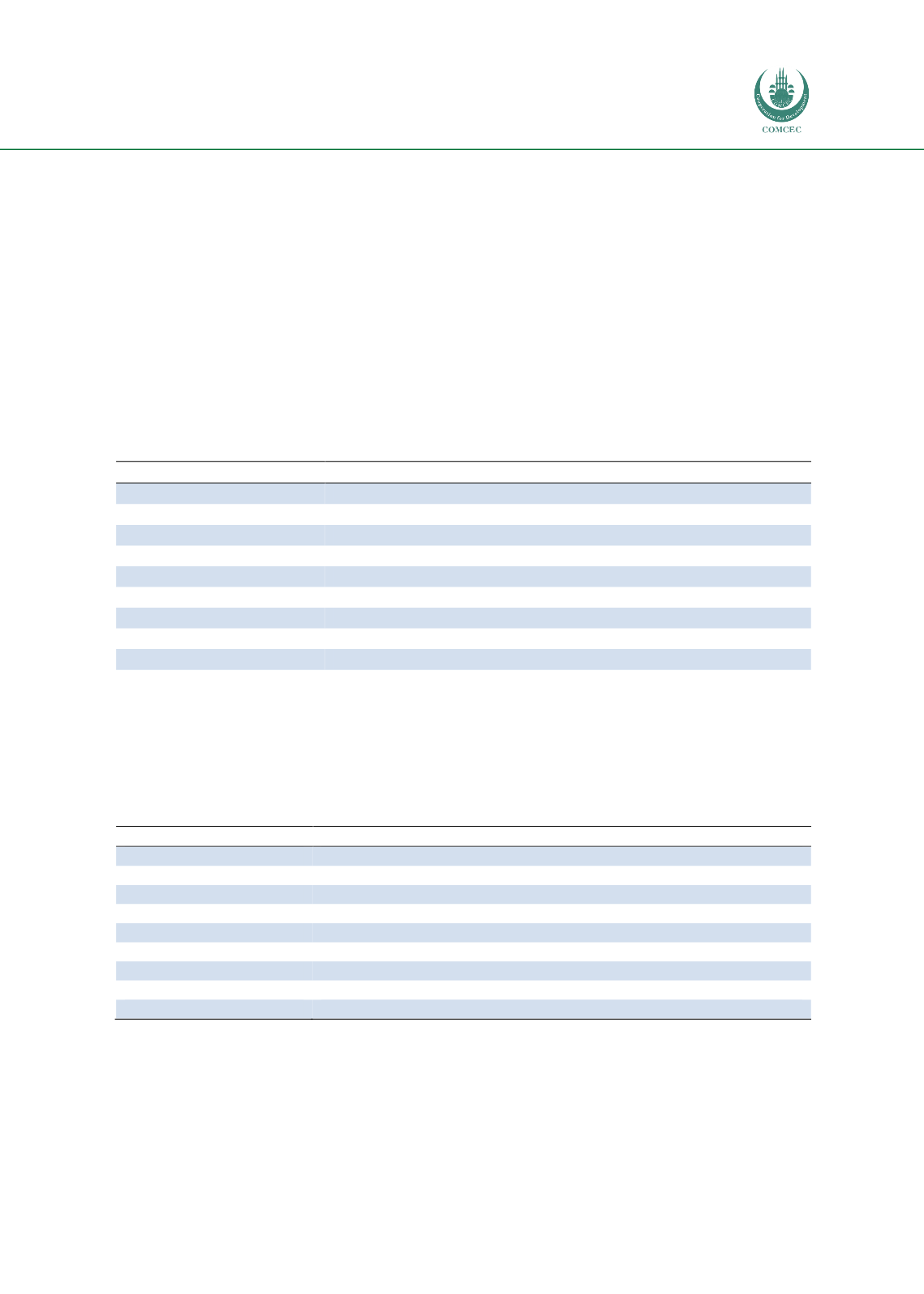

COMCEC Transport and Communications
Outlook 2019
53
6.2.
T
ELECOMMUNICATIONS IN THE
OICM
EMBER
C
OUNTRIES
OIC member countries usually have lower telephone and internet penetration rates and tend to
stay in the disadvantaged side of digital divide. On the other hand, there are significant
differences among OIC countries in terms of penetrations. While there are some OIC countries
with rates close to or even above high-income countries, others have only a negligible level of
telephone and internet penetration. Detailed telecommunication statistics for OIC countries can
be seen in Table A.3 in the Appendix.
As Table 18 indicates, Iran is the leading OIC country in terms of fixed-telephone penetration
with 37.27 percent and followed by UAE and Bahrain.
Table 17: Fixed telephone subscriptions (per 100 people) in top 5 OIC countries
Country
Fixed-telephone subscriptions per 100 inhabitants
Developed Countries
39.77
Iran
37,27
UAE
24,31
Bahrain
18,36
Kazakhstan
18,29
Brunei Darussalam
18,25
World Average
12.72
OIC Average
7.85
Developing Countries
7.41
Source: International Telecommunication Union
Statistics, 2018
As seen in Table 19, several OIC countries have much higher mobile cellular penetration rates
compared to developed countries’ average. UAE and Kuwait followed by Maldives, Kazakhstan
and Qatar are the OIC countries with the highest mobile cellular penetration rates.
Table 18: Mobile cellular subscriptions (per 100 people) in top 5 OIC countries
Country
Mobile-cellular telephone subscriptions per 100 inhabitants
UAE
208,50
Kuwait
178,59
Maldives
166,36
Kazakhstan
141,96
Qatar
141,85
Developed Countries
126.03
OIC Average
107.76
World Average
104.93
Developing Countries
100.76
Source: International Telecommunication Union, 2018
OIC countries are generally in a less favourable position in terms of internet penetration
compared to fixed and mobile telephony. Average of fixed broadband penetrations among the
OIC countries is just 6.16 percent and this is much lower than world average, which is 14.81
















